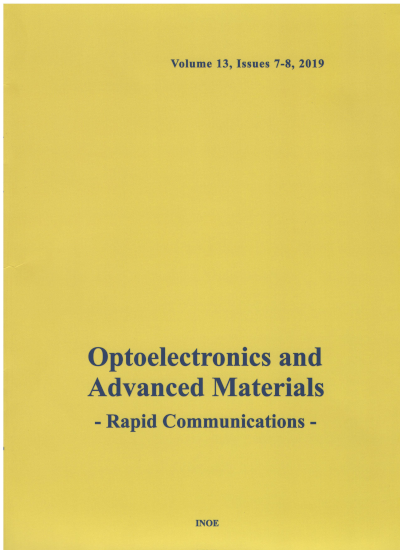Abstract
The design, fabrication, and the properties of the organic nanocomposite-bsed rotation angle sensors have described in this
study. The thin film of the organic semiconductor nickel phthalocyanine (NiPc), carbon nanotubes (CNTs) and silicone
adhesive nanocomposite was deposited by drop casting and rubbing-in technology in the gap between two aluminum films.
These aluminum films were deposited on thin plastic substrate in order to make the rotation rotation angle sensors.
Experimentally, it was found that if one side of the sensor is immovable, but the second side can rotate around of
longitudinal axis of the sensor at 45o
. Upon rotation in one side up to 45o
the resistance and the impedances (at 1 kHz and
200 kHz) were decreased accordingly by 1.63, 1.60 and 1.53 times due to the compression of the sensitive thin film along
the length. While these parameters increased accordingly by 1.38, 1.39 and 1.46 times on the extension of the film due to
rotation of the side of the sensor on 45o
in opposite side. The fabricated sensors were shockproof. The sensor’s fabrication
was easy; materials were cheap and ecologically friendly. The rotation angle sensors can be used as teaching aid as wel.
Keywords
Nanocomposite, Drop casting, Rubbing-in technique, Compression, Extension, Impedance.
Citation
KHASAN S. KARIMOV, MUHAMMAD TARIQ SAEED CHANI, HADI M. MARWANI, ABDULLAH M. ASIRI, Organic nanocomposite-based rotation angle sensors, Optoelectronics and Advanced Materials - Rapid Communications, 17, 9-10, September-October 2023, pp.381-385 (2023).
Submitted at: March 1, 2023
Accepted at: Oct. 9, 2023
